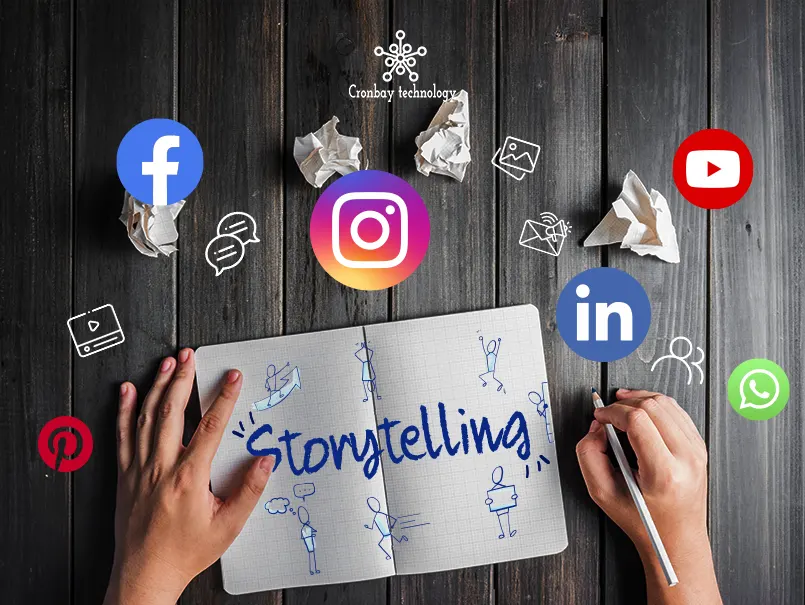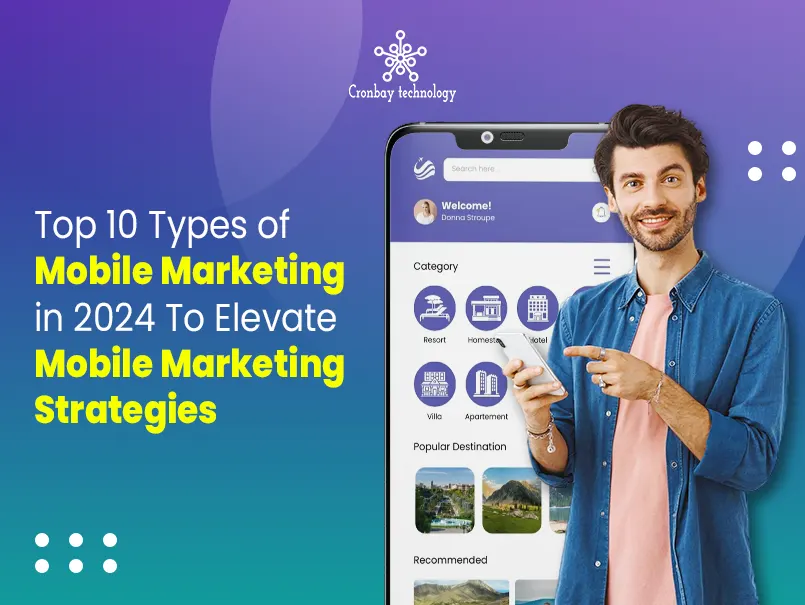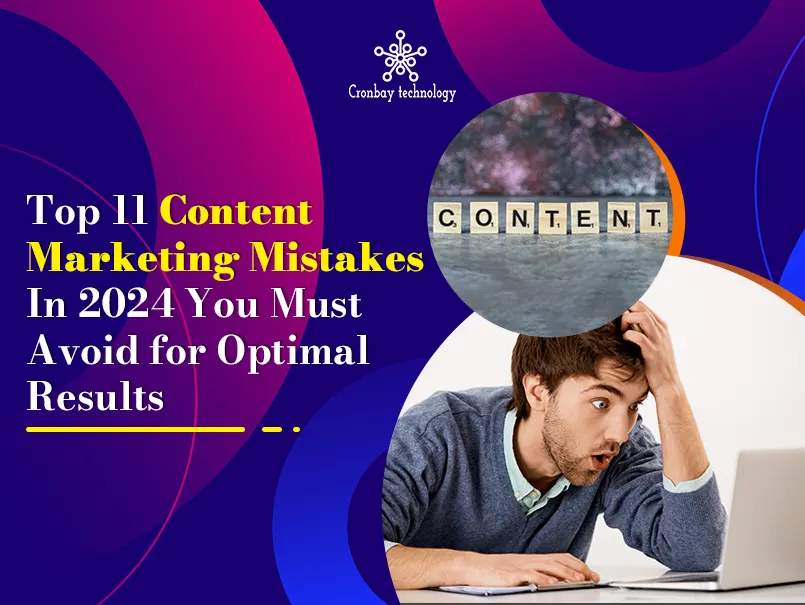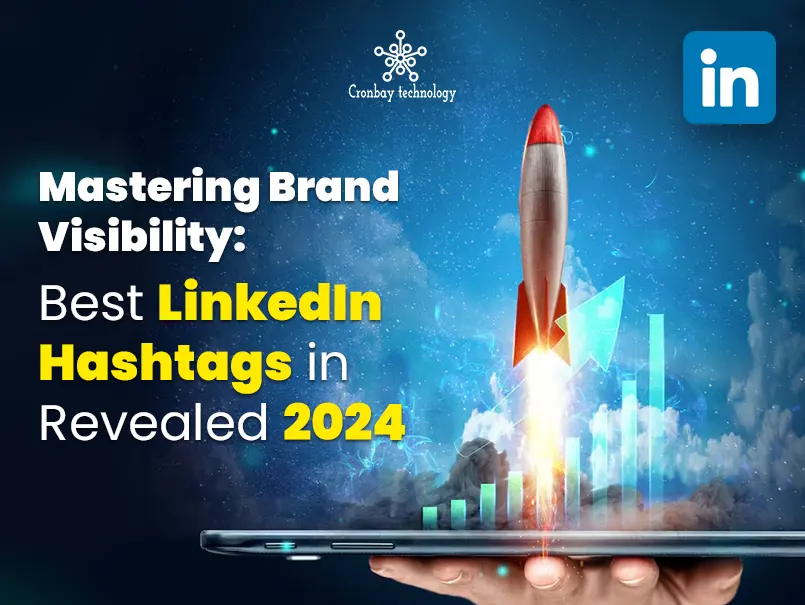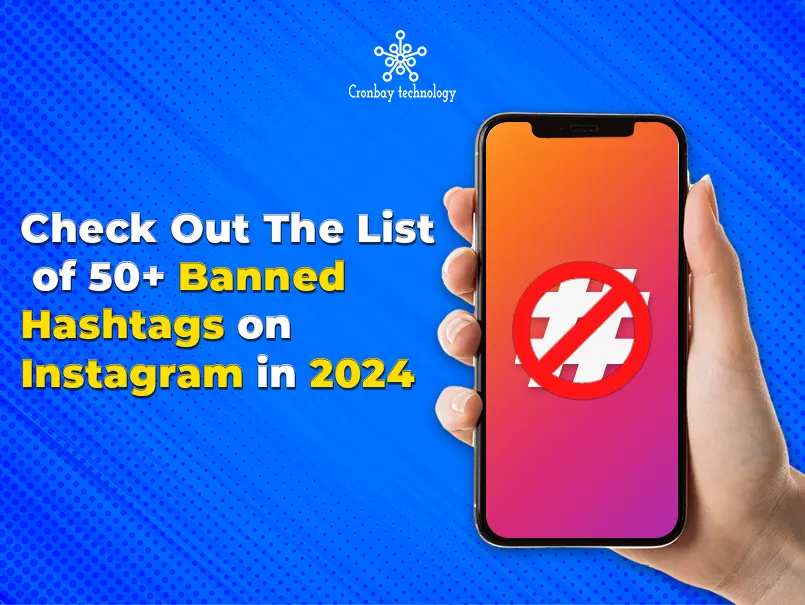Ever wondered what sets brands like Salesforce and Airbnb apart? Well, they've got a science behind storytelling and a common thread: a rock-solid commitment to corporate storytelling in their content marketing.
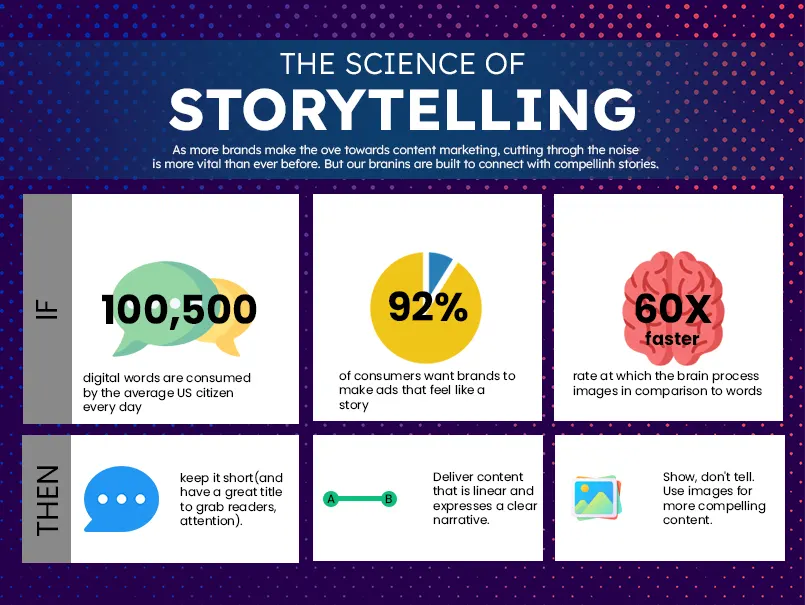
Storytelling in writing is a powerful way to connect with people and influence their behavior. According to the study by Go Globe, stories are retained a staggering 22 times better than mere facts and numbers. Also, the same study found that storytelling can increase conversions by up to 30%.
That's why it's so important for businesses to learn storytelling, from the basics of corporate storytelling to more advanced techniques like personal branding storytelling and beyond.
This blog will explore the best examples of brand storytelling, storytelling content strategy, why storytelling is powerful, and more. So, whether you're a business owner or a marketer, stick around the blog and learn how storytelling can help you achieve your goals.
Understanding Storytelling: Essential Elements with an Easy Example
To understand what storytelling is about, you just need to know the key elements of storytelling. Take a look at this example:
In content marketing storytelling, it's a bit like fairy tales; you've got to cover the basic elements of content marketing storytelling:
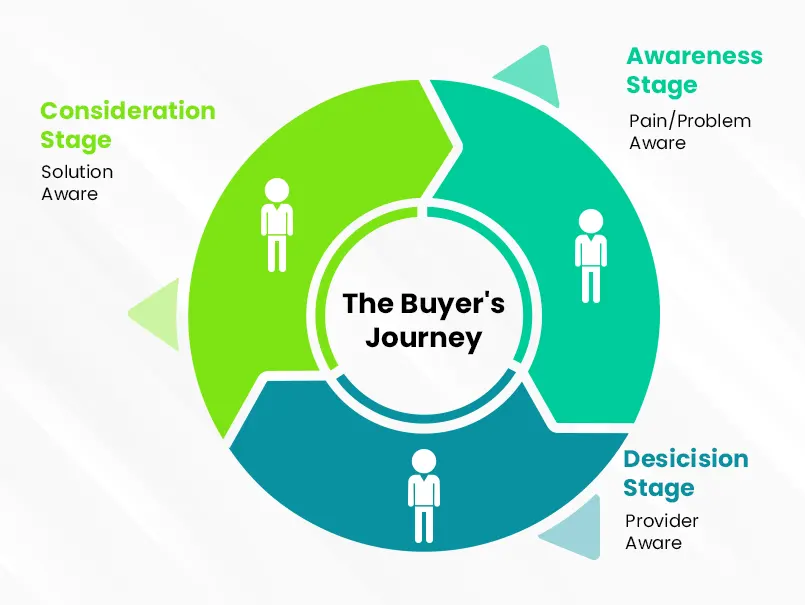
1. Introduction:
First, introducing the characters, establishing the story's setting, and providing vivid details are essential components of storytelling.
2. Problem:
The next elements of storytelling include working on the objectives of storytelling. For instance, every story needs a problem or a challenge—something that creates tension and might change the course of the character's journey.
3. Build-up:
This is the part where the story starts to lead towards its most important moment, the climax.
4. Climax:
The climax is the high point that brings empathy in storytelling. It is the point where something significant happens, like a big change or realization.
5. Conclusion:
After the climax, there's the conclusion, and resolution, where all the questions and mysteries get answered. For example, let's look at how these elements work in the story of Lauren:
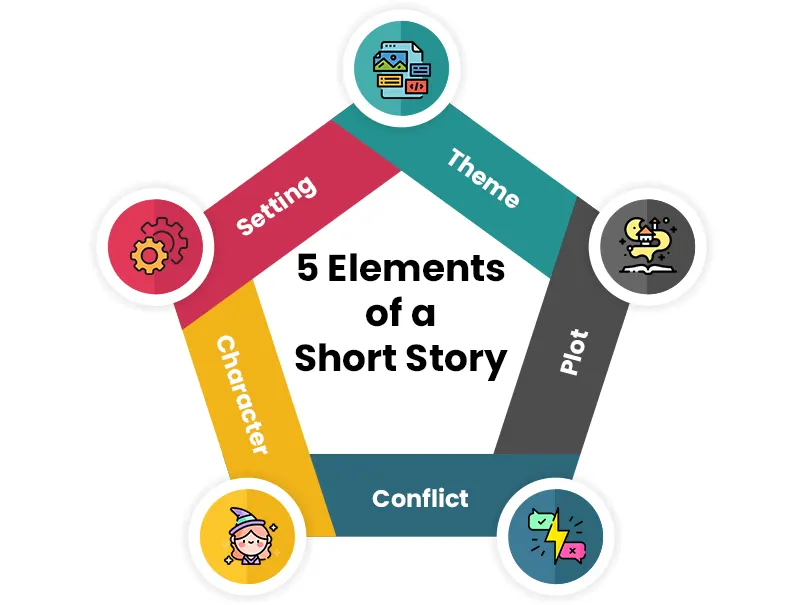
1. Characters:
Lauren is a professional plus-size woman (like her customers).
2. Setting:
New York is a place where professional women work.
3. Problem:
Lauren struggled to find clothing that truly reflected her personality and size.
4. Build-up:
Over time, her wardrobe issues affected her work and confidence.
5. Climax and resolution:
Finally, Lauren decided to start her brand, Henning, to create authentic and stylish clothing for plus-size women, by plus-size women.
The Importance of Storytelling in Content Marketing
Storytelling, from prehistoric times to the modern times, has consistently played a pivotal role in the success of content marketing strategies. Throughout history, compelling stories have been game-changers in engaging audiences and conveying a brand's message. Here's why storytelling remains of utmost importance:
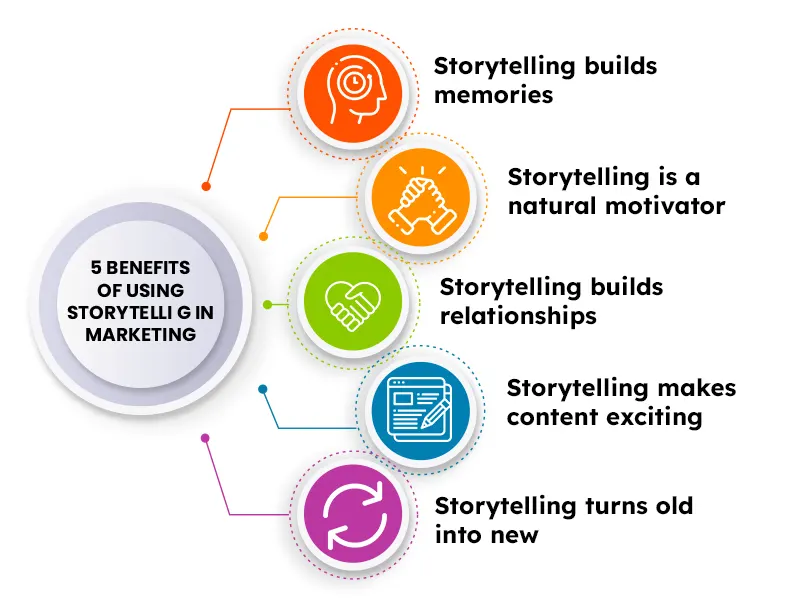
1. Connecting with Your Audience:
Design in storytelling involves tailoring your narrative to the interests, pain points, and preferences of your target audience, fostering a deeper connection.
2. Conveying your Brand Message:
Storytelling techniques allow you to express your message in a memorable and relatable way, ensuring it aligns seamlessly with your brand's values.
3. Achieving Marketing Goals:
Crafting storytelling with data can guide your audience toward desired actions, a crucial tool for meeting marketing objectives.
4. Ensuring Relevance:
Keeping storytelling into writing keeps your narrative contextually relevant to your target audience, ensuring resonance and relatability.
5. Evoking Emotion:
The power of storytelling lies in its ability to evoke emotions like joy, inspiration, or empathy, enabling a more profound impact on your content.
In essence, storytelling skills form the foundation of effective content marketing. It's the bridge that connects your brand to your audience, conveys your message, drives action, maintains relevance, and stirs emotions across all marketing strategies.
10 Best Strategies for SEO-Optimized Content Marketing Storytelling

Creating a compelling storyline is essential to content marketing. It must engage your audience, align with your brand's message and goals, and evoke emotions for a deeper connection. Here are key strategies:
1. Shift the Focus Away from Your Brand:
Instead of leading with your own story, adopt a user-centric mindset. Begin by contemplating user stories framed as "As (who) I want to (what) so that (why)." This perspective ensures your content remains customer-focused.
2. Audience-Centered Storytelling:
Ensure your storyline revolves around your target audience and addresses their specific needs, interests, and pain points. The tighter the alignment between your narrative and your audience, the higher the likelihood of engagement.
3. Initiate with a Compelling Hook:
Your narrative should kick off with a gripping hook that immediately captures your audience's interest, enticing them to continue reading or watching. Hooks can take the form of unexpected facts, thought-provoking questions, or engaging anecdotes.
4. Infuse Your Story with Tension:
A well-constructed story should introduce elements of tension and conflict, whether it's the struggle to achieve a goal or the presence of a dilemma demanding resolution. These parts of the story keep the audience interested and make them care about what's happening.
5. Paint Vivid Mental Pictures:
Use colorful words and detailed descriptions to create pictures in your audience's minds. This makes your story more memorable and powerful.
6. Show, Don't Tell:
In the realm of storytelling with data: a data visualization guide for business professionals, the key lies in making more interesting and engaging stories. You should focus on "showing" rather than just "telling" what happened.
7. Forge an Emotional Bond:
In the realm of ever-after storytelling, the most impactful tales are those that skillfully weave narratives that evoke deep emotions, ultimately forging a profound connection with your audience. Hence, choose stories that genuinely resonate with your brand and your audience's emotions.
8. Interviewing Subject Matter Experts (SMEs)
In today's tough business storytelling world, talking to an expert (SME) through interviews can help you become a thought leader. It's like telling a good story. You can chat with someone from your team for an insider's view or an industry expert for a deeper understanding. This makes your content richer and builds lasting relationships.
9. Leverage Stories for Impact
The best examples of brand storytelling breathe life into content, forging a strong connection, enhancing understanding, and offering entertainment. Such stories actively engage readers.
Salesforce's Impact
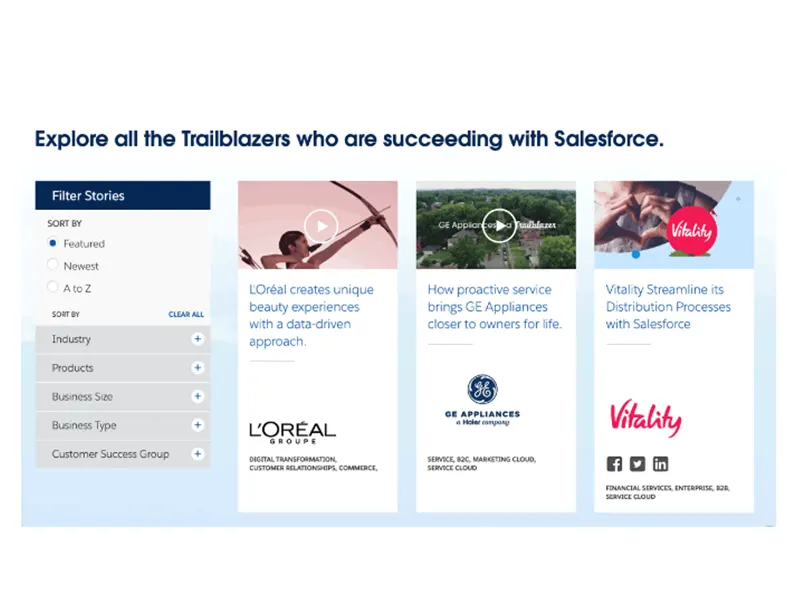
Salesforce equips businesses to sell, market, and analyze effectively. They leverage client voices for compelling testimonial marketing, using Success Stories to cast the customer as the hero and themselves as the guide. This approach fosters personalized services, ensuring a stellar customer experience.
Airbnb's Data-Driven Insights
Airbnb utilizes data on host/guest interactions, local market trends, and current events to provide real-time recommendations, which travellers can accept or decline. For instance, Airbnb's "Price Tip" feature offers hosts continuously updated guidance on their pricing, helping them anticipate bookings. They also provide data-based recommendations to boost occupancy rates and reduce turnover. Given the rise in longer stays, Airbnb suggests offering discounts for extended bookings.
10. Leverage Case Studies
Publish case studies on your website or social media to showcase successful partnerships, offering a glimpse into how you've enhanced client businesses and turned cold leads into hot prospects through engaging stories.
5 Diverse Content Formats for Effective Storytelling
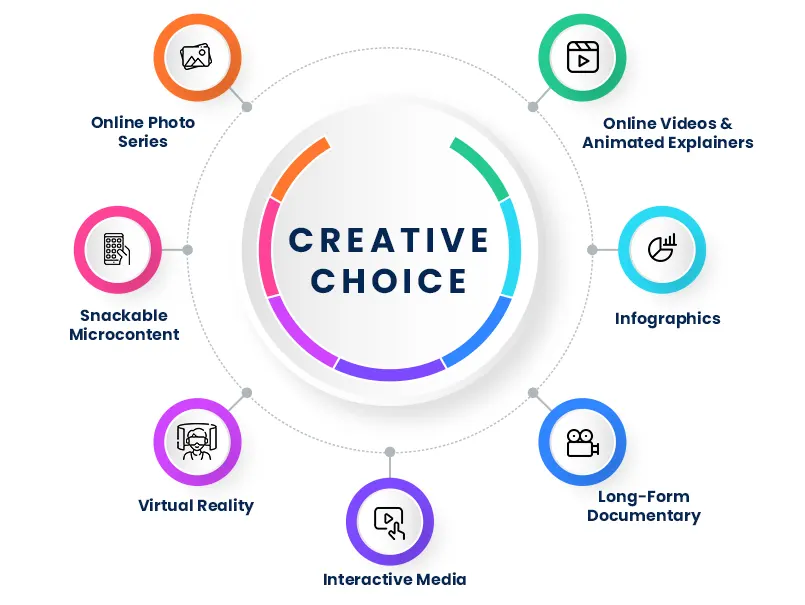
1. Blog Posts :
- Easily created and consumed, reaching a broad audience.
- Well-optimized for search engine rankings, driving organic traffic.
- Allows for in-depth exploration and detailed explanations.
2. Videos:
- Effectively convey emotions, stories, and information through visuals and audio.
- Often receive more engagement, like comments, and shares.
- Types: tutorials, voice search, vlogs, animations, and interviews
3. Podcasts:
- Connect personally through voice, ideal for multitasking.
- Growing podcasting audience.
- Fits into commuting and exercise routines.
4. Infographics:
- Visually present complex information that is easily shared.
- Effective for statistics and data-driven stories
5. Interactive Content:
- Engages users actively with quizzes, polls, and interactive videos.
- Gathers user data for tailored content.
Choosing the right types of storytelling formats depends on your audience and goals, and mixing these formats can broaden your reach and effectively convey your story.
Final Thoughts
In summary, why is storytelling important? Well, consider that customers come across about $531 billion in ads each year.
Now, when it comes to attracting customers, it's not a straightforward path. People research before they buy, and everyone's journey is different. So, our job is to create an interesting story that grabs their attention and takes them on a personalized journey towards transformation.
"Storytelling is an underrated skill," said Gary Vaynerchuk. It is one of the most famous quotes about storytelling. Let's utilize storytelling to connect with and guide our customers in the digital marketing world.
Frequently Asked Questions
1. How can I identify and target my audience through storytelling?
Ans. To target your audience through storytelling, research their demographics and interests. Craft relatable stories that resonate with their experiences, track performance data, and maintain consistency across channels for a lasting connection.
2. How does storytelling impact brand authenticity and credibility?
Ans. Storytelling boosts brand authenticity and credibility by humanizing the brand, fostering trust through relatable narratives, and showcasing values and transparency.

